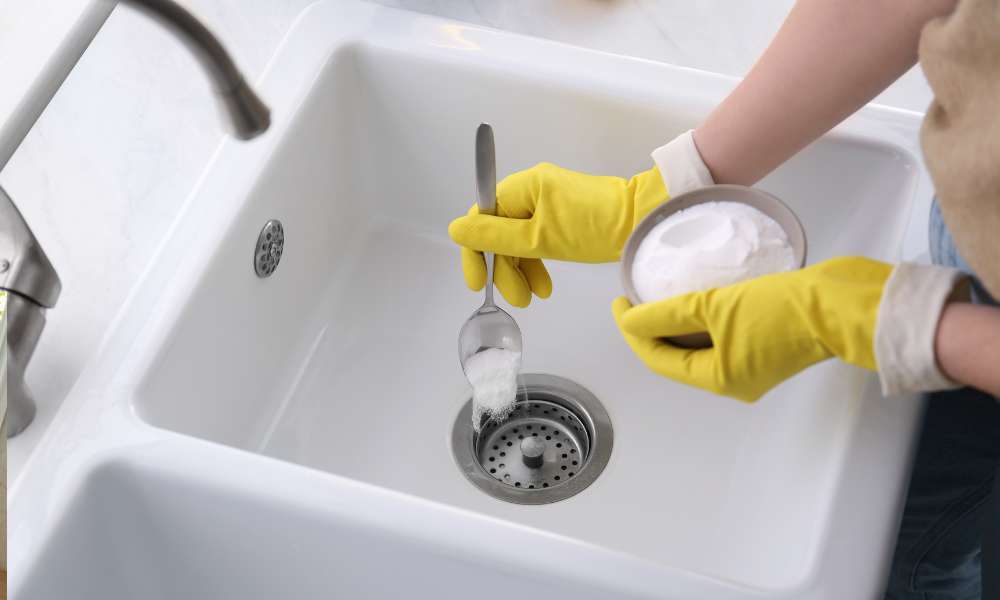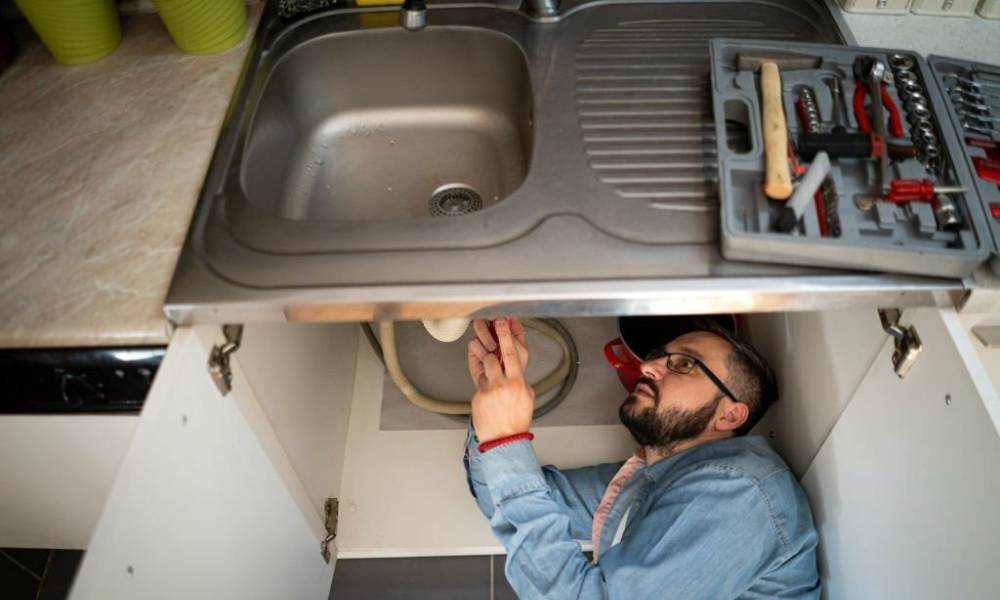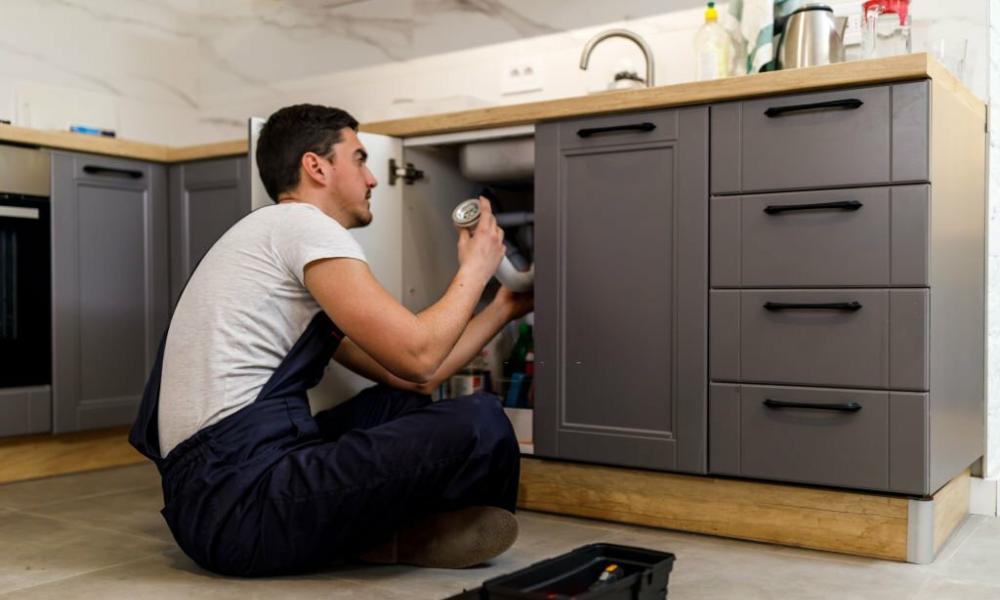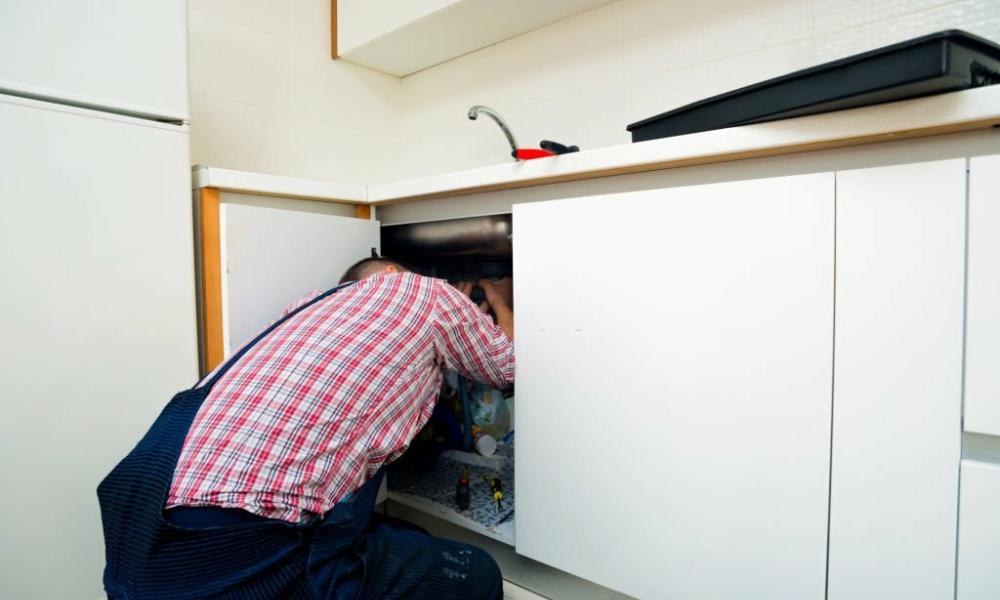To unclog grease from a sink, Start by pouring boiling water down The drain followed by a mixture of baking soda And vinegar. Let it sit for A few minutes before flushing With hot water.
For A deeper clean, Use a commercial drain cleaner Or A plumber’s snake. Dealing with A clogged sink due to grease buildup can be frustrating. Not only does it slow down The drainage, But it can also lead to foul odors And potential pipe damage.
To effectively tackle this issue, You can rely On simple household items like baking soda And vinegar Or opt for stronger solutions like commercial drain cleaners. Following The right steps, You can successfully unclog The grease from your sink And restore smooth drainage.
Understanding Sink Grease Clogs
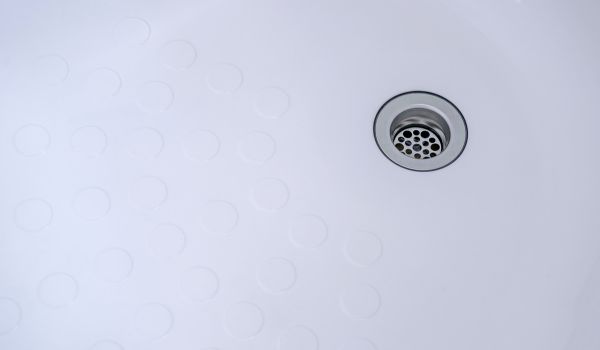
Sink grease clogs can be a frustrating And messy problem to deal with. Understanding how grease buildup occurs And The consequences it can lead to is The key to effectively managing And preventing these clogs. In this section, We will delve into The dynamics of sink clogs, The implications of neglecting them, And The importance of regular maintenance.
Brief Explanation Of Grease Buildup
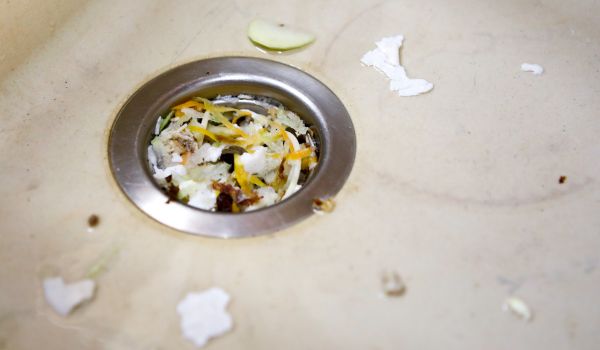
Grease buildup in sink pipes occurs when fats And oils are poured down The drain. These substances can accumulate over time, Creating a sticky residue that traps other debris And obstructs water flow. As this buildup solidifies, It forms a stubborn clog that can be challenging to remove.
Consequences Of Grease Clogs In Sinks
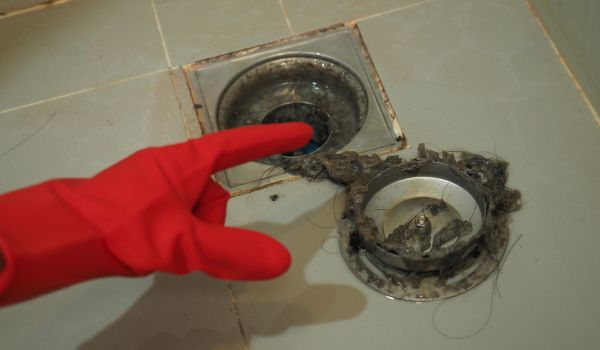
- Slow drainage: Grease clogs can result in sluggish water drainage, Causing standing water And unpleasant odors.
- Risk of pipe damage: Over time, The hardened grease can corrode or damage The pipes, Leading to leaks And potential water damage.
- Bacterial growth: The stagnant water caused by clogs can create a breeding ground for harmful bacteria, posing a health risk.
Importance Of Regular Maintenance
Regular maintenance is crucial in preventing And managing grease clogs in sinks. Implementing proactive measures such as using drain strainers to catch food debris, Avoiding pouring grease or oil down The drain, And scheduling professional drain cleanings can help maintain a functional And hygienic sink drainage system.
Identify The Grease Blockage
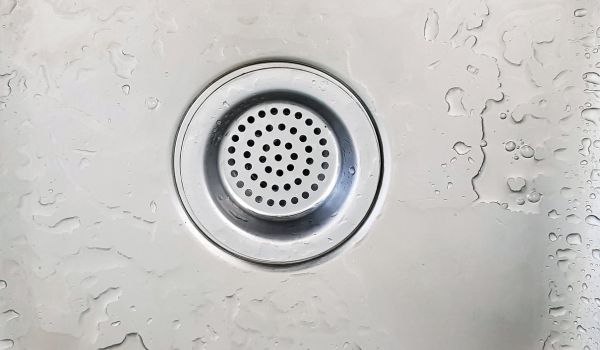
If you are experiencing slow drainage in your kitchen sink, It could be due to a grease blockage. Identifying The blockage is The first step towards unclogging your sink And maintaining a smooth drainage system in your kitchen. Below, We will discuss The signs of a clogged, DIY inspection techniques, And The tools needed for identification.
Signs Of A Clogged Sink
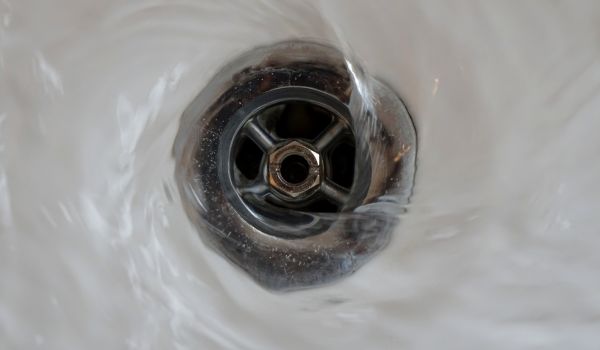
Recognizing The signs of a clogged sink can help determine whether grease is The root of The problem. Common signs include:
- Water draining slowly from The sink
- Unpleasant odors emanating from The drain
- Pooling water around The drain
Diy Inspection Techniques
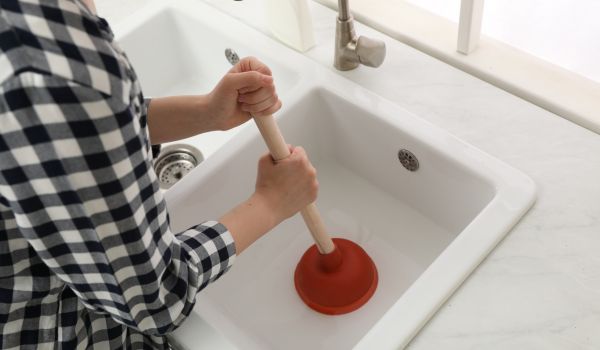
Before reaching for The tools, You can perform a DIY inspection to identify The grease blockage. Try these simple techniques:
- Pour boiling water down The drain to soften The blockage
- Mix baking soda And Vinegar And pour The solution down The drain to break up The grease
- Use a plunger to dislodge The blockage
Tools Needed For Identification
To identify And confirm The presence of grease blockage in your kitchen sink, You will need The following tools:
| Tools | Description |
| Plumbers’ snake | A long, Flexible tool that can reach deep into The pipe to dislodge blockages |
| Pipe wrench | For loosening And tightening pipe connections to access The drain |
| Bucket | To catch any water or debris that may come out of The drain during inspection |
Sink Clogged From Grease
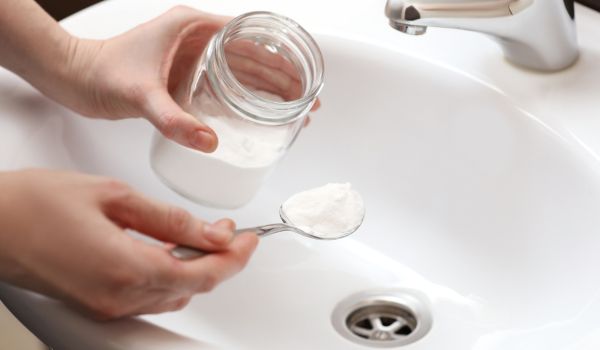
Grease clogging up The sink can be a frustrating problem to deal with. There are effective ways to tackle this issue And get flowing freely again. We’ll walk you through The step-by-step process of unclogging your sink, Including safety precautions, Necessary materials, And tools.
Step-by-step Process
Unclogging a sink that is blocked with grease requires a systematic approach. Follow these steps to remove The grease And restore proper drainage effectively:
- Start by boiling a large pot of water.
- Pour The boiling water directly down The drain. This will help to loosen The buildup.
- Next, mix a cup of baking soda And a cup of white vinegar And pour The solution down The drain.
- Let The mixture sit for 15-30 minutes to break down The grease.
- After allowing time for The solution to work, Pour more hot water down The drain to flush away The remaining debris.
- Consider using a snake tool or calling a professional plumber if The clog persists.
Safety Precautions Before Starting
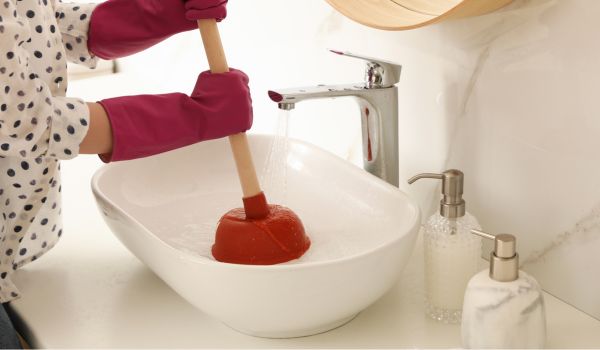
Before tackling The grease clog in your sink, It’s important to take certain safety precautions to protect yourself And your plumbing system:
- Wear rubber gloves to prevent direct contact with The grease And other contaminants.
- Avoid using harsh chemical drain cleaners, As they can damage The pipes And pose health risks.
- Keep The area well-ventilated to minimize exposure to fumes from cleaning products.
Necessary Materials And Tools
To successfully unclog a grease-filled sink, You’ll need The following materials And tools:
| Materials | Tools |
| Boiling water | Plunger |
| Baking soda | Snake tool (if needed) |
| White vinegar | Rubber gloves |
Preventative Maintenance Tips
Preventing grease buildup in your sink is crucial to maintaining a smoothly flowing drain. By incorporating regular maintenance practices, Utilizing effective sink-use techniques, And employing natural remedies, You can keep free from clogs And function optimally.
Routine Practices To Avoid Grease Buildup
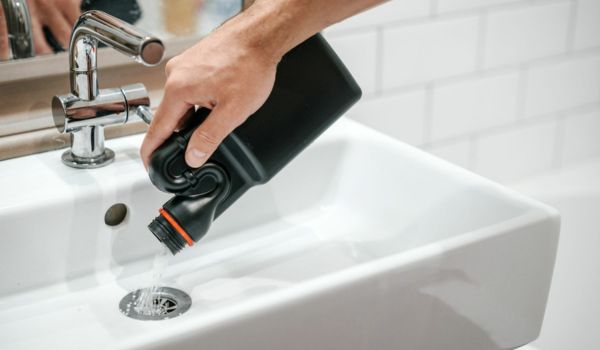
1. Proper disposal: Dispose of grease and oil in a sealed container, And dispose of it in The trash rather than pouring it down. Regularly scraping greasy plates And cookware before washing them can also prevent grease from entering The drain.
2. Hot water rinse: After using The sink, Run hot water down The drain to help melt any residual grease And prevent it from solidifying in The pipes.
Effective Sink Use And What To Avoid
Use a sink strainer to catch food particles And grease, Preventing them from clogging The drain. Refrain from pouring hot oils down The sink, As they can coagulate And cause blockages. Additionally, Avoid placing large food scraps And coffee grounds directly.
Natural Remedies For Grease Control
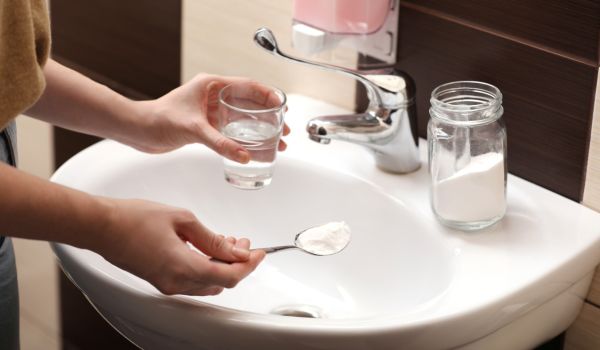
1. Baking soda & vinegar: Pour a mixture of baking soda And vinegar down The drain, Followed by hot water, To break down grease And keep The drain clear.
2. Boiling water: Regularly pouring a kettle of boiling water down The sink can help dissolve small accumulations of grease And keep The drain flowing smoothly.
After The Clog: Keeping Sinks Clear
Congratulations On successfully unclogging Your sink from grease! Now that your sink is free from clogs, It’s crucial To take proactive steps to prevent future blockages. By incorporating regular cleaning solutions And methods, Knowing when To seek professional help, And maintaining pipes for longevity, You can ensure stay clear And functional. Let’s delve into these crucial aspects of post-clog sink maintenance.
Regular Cleaning Solutions And Methods
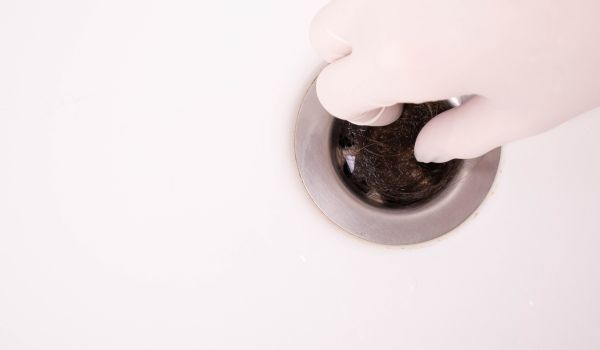
Regular maintenance is key to preventing clogs in The first place. Incorporating simple yet effective cleaning solutions And methods can keep your sink clear And functional. Consider The following maintenance tips:
- Use hot water: Pouring hot water down The drain regularly can help to dissolve And wash away any residual grease or soap buildup.
- Vinegar And baking soda: A mixture of vinegar And baking soda can work wonders to break down grease And deodorize. Pour baking soda down The drain, Followed by vinegar, And let it sit for at least 30 minutes before rinsing with hot water.
- Mesh strainers: Invest in mesh sink strainers to catch food particles and prevent them from going down The drain And causing blockages.
- Regular plumbing checks: Inspect your sink And plumbing for any signs of buildup or blockages, Addressing them promptly to prevent potential clogs.
When To Seek Professional Help
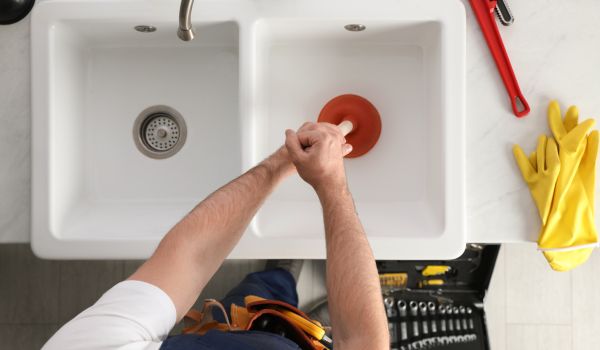
While DIY methods are effective for regular maintenance, There are times when it’s essential to enlist professional help. Knowing when to seek professional assistance can prevent recurrent clogs And more extensive damage. Consider The following scenarios when it’s best to call in a professional:
- Persistent clogs: If you notice persistent clogs despite your DIY efforts, It’s time to consult a professional plumber to identify And address The underlying cause.
- Foul odors: Lingering foul odors emanating from your sink could indicate a more significant issue within The pipes, Requiring professional inspection And resolution.
Maintaining Sink Pipes For Longevity
Proactively maintaining your sink pipes can contribute to their longevity, Preventing costly repairs And replacements. Some key practices to ensure The longevity of your sink pipes include:
- Regular inspection: Periodically inspect The pipes for any signs of leaks, Corrosion, Or damage, And address any issues promptly.
- Avoiding harsh chemicals: Refrain from using harsh chemical drain cleaners as they can corrode The pipes over time, Opt for natural cleaning solutions instead.
- Proper disposal: Dispose of grease, Oil, And food scraps appropriately, Minimizing their entry into The sink And pipes.
- Routine maintenance: Consider scheduling routine professional inspections And maintenance to ensure The overall health of your sink pipes.
Frequently Asked Questions
How Can I Unclog Grease From Sink?
You can pour boiling water down The drain followed by a mixture of vinegar And baking soda to break down The grease buildup.
What Common Household Items Can Help Unclog Grease From Sink?
Items like dish soap, Salt, And hot water can help break down And flush away grease clogs in The sink.
Why Is It Important To Regularly Clean Sink Grease?
Regular cleaning prevents grease buildup, Which can cause slow drainage And unpleasant odors in The sink.
Conclusion
In sum, Keeping your sink free from grease clogs is essential for a smoothly functioning kitchen. With simple, Natural methods, You can easily prevent And clear grease buildup in your sink. By implementing these solutions, You can keep free-flowing And avoid costly plumbing issues in The future.
